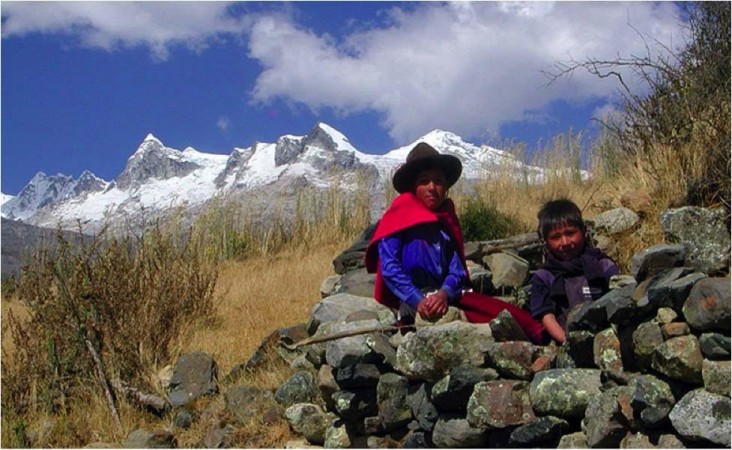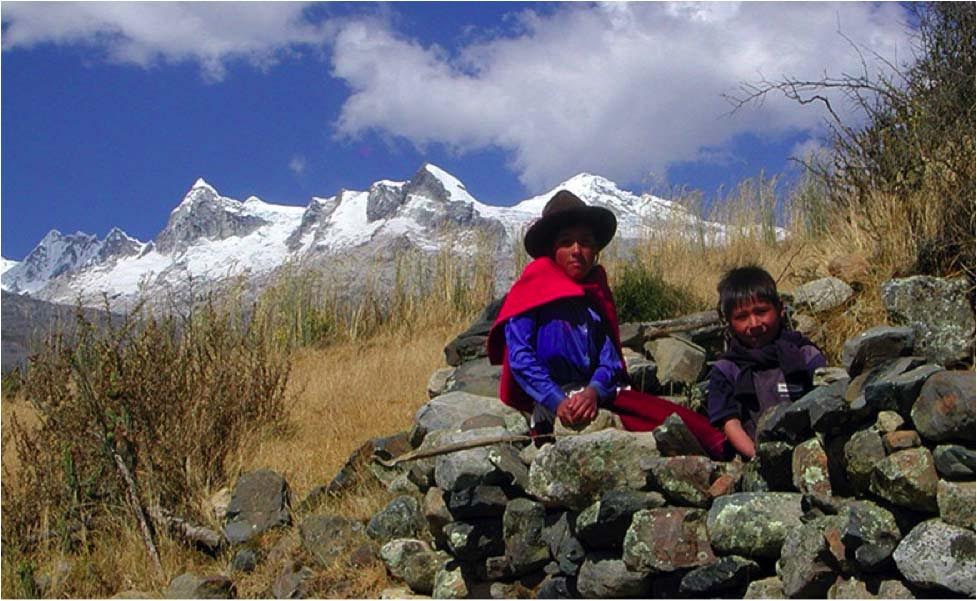
Climate change has diminished water supply in Peru’s tropical Andean highlands. USAID invests in climate research and innovation to help local communities in the Amazon Basin and highlands adapt to these changes and secure a consistent water supply for the future.
Climate change directly affects water regulating ecosystems, such as wetlands, native grasslands and mountain glaciers, decreasing water availability and increasing the risk of glacial lake floods, extreme droughts, erosion and landslides. USAID helps communities and local governments adapt to changes in water availability through “green infrastructure” projects, advancing climate science research, and empowering local communities with sound environmental management practices to ensure long-term sustainability of their water resources.
OUR WORK
STRENGTHENING ADAPTIVE CAPACITY
Due to climate change in recent years, seasonal water variations have diverged from historic patterns, resulting in more droughts and floods. The changes impact population centers such as Lima, Peru’s capital and home to 10 million people, which stretches into the Andean highlands. USAID supports cost-effective “green infrastructure” projects to manage fluctuations in the water supply. In the regions of Cajamarca, Ancash and Junín, USAID works with rural communities to implement water harvesting techniques and other practical, low-cost adaptation measures to improve their water security. USAID also provides technical support for public works projects that improve irrigation to rural communities and farmers whose livelihoods are threatened by climate change.
ADVANCING CLIMATE SCIENCE AND INNOVATION
Adapting to climate change requires sound research on its processes and impacts. USAID facilitates professional exchanges between Peruvian and American scientists from the National Institute for Agrarian Innovation in Peru, the Geological Institute of Peru, and the U.S. Department of Agriculture’s Research Service to identify innovative research-based strategies to address the effects of climate change. Equipped with accurate data, new methodologies and monitoring capabilities, USAID supports regional governments to inclusively plan and manage water resources.
ENGAGING LOCAL COMMUNITIES
Effective climate adaptation requires citizen participation. USAID partners with local communities to understand the sources and threats to local water supplies and implement community-based conservation management plans. Citizens learn how to monitor, evaluate and validate results of improved climate change practices, ensuring sustainability of local conservation efforts. Meanwhile, women in rural Peru are under-represented in community leadership and decision making, although they typically bear greater responsibility for providing water for their families. USAID has successfully worked with communities to advocate for increased participation of women in local climate change adaptation initiatives.
Climate Change Adaptation ![]() (pdf - 202k)
(pdf - 202k)









Comment
Make a general inquiry or suggest an improvement.